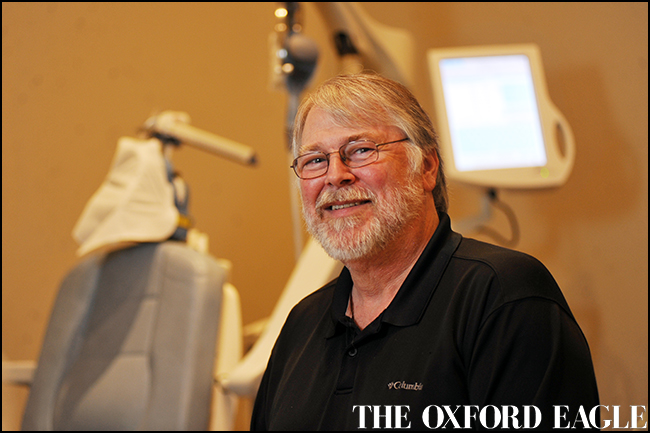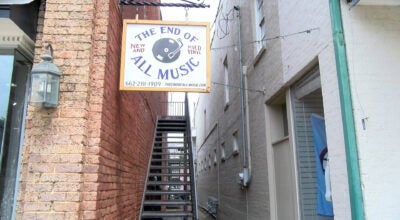Local doctor offering alternative depression treatment for patients
Published 6:00 am Sunday, September 20, 2015

- Dr. Harrison Evans, with the Center for Healing and Wellness in Oxford, offers Transcranial Magnetic Stimulation (TMS) as an alternative treatment for depression.
For those suffering from their own or a family member’s depression, an area physician is offering an alternative treatment that can help cure the illness’ symptoms.
Dr. Harrison Evans, M.D., with the Center for Healing and Wellness, is offering NeuroStar Transcranial Magnetic Stimulation (TMS), a new form of depression treatment that uses short pulsed magnetic fields to stimulate nerve cells in the brain.
“Depression is a horrible burden on us, and we’ve had limited tools to treat it,” Evans said. “This is an exciting new possibility that can really improve the quality of life, and that’s what medicine is about.”
After studies of PET scans revealed that depressed patients had less metabolic brain activity than non-depressed patients, TMS was developed to increase brain cell activity by pulsing a magnetic wave in areas known to be affected by mood.
TMS is offered only to depressed patients who have had a previous failed treatment attempt. The most commonly used treatment for depression is medication, which is used to target and manipulate three neurotransmitters but does not address the metabolic activity of the brain and has many negative side effects like sexual dysfunction, weight gain and loss of feeling.
TMS is given in 37-minute treatments given five days a week for four to six weeks. After the six week period is over, patients will come back for tapered or maintenance treatments. Patients can watch T.V. while the treatment is given and the primary side effect is local irritation at the point of treatment.
Of the exciting news that comes with a new treatment option, Evans and Licensed Practical Nurse Anna Downs said TMS’ 70 percent success rate was one of the best things about the treatment. Evans and Downs have treated 30 patients with TMS over the past two years and have seen successful results in Oxford.
Downs mentioned a female patient who was so severely depressed that she couldn’t get out of bed or make eye contact before undergoing TMS therapy. After six weeks, Downs said, she was coming in the office with make up on, “dressed to the nines, and smiling from ear to ear.”
“It is the most rewarding and shocking thing that I have seen, and I’ve been a nurse for 30 years,” Downs said.
Evans and Downs hope that as the medical community learns more about depression and its causes that the country will be more open-minded about the illness, which affects roughly seven percent of people nationwide and 14 percent of Mississippians.
“I like to bring this up so we can stop talking about depression as a stigma and begin to understand it as a brain disease,” Evans said. “I don’t think we truly appreciate the effects, not only on the person, but their families and our society in general, of what depression causes us. Depression is not an illness that affects just the person, it effects everyone. The beauty of TMS is it really does demonstrate, more than anything, how a direct stimulation of brain circuits changes one’s mood and resolves depression.”
“We want to turn around the way people think about depression,” Downs said. “The shame is in not coming in for treatment, not being effected by the illness.”
Evans is an Ole Miss graduate and a native of Shuqualak. He completed his residency with the United States Air Force at the Wilford Hall Medical Center in San Antonio, Texas and moved back to Mississippi in 1999 when he joined the North Mississippi Medical Center in Tupelo. Evans moved to Oxford in 2004 and opened the Center for Healing and Wellness in 2008. He is currently the only physician in Oxford to offer TMS therapy.





